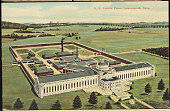What do you consider is the number one reason the United States is so divided?
Aug 8, 2022 10:47:29 #
currahee506 wrote:
We are divided because that is the nature of C*******m. In its many forms, it has taken over our public schools via indoctrinated teachers from the universities and State colleges. When is the last time you debated with a person about "social justice?" Or had a discussion with anyone about the difference between "equal opportunity" and "equal outcome?" The public schools are merely tax-payer expensive "re-education camps."
And the obstacle the Democrat/C*******ts/RINOs have is; Americans now know what the government/public school system is indoctrinating their children with because of the shut-downs. And many are outraged. I'm sure the Teacher's Union is reassuring their members that these annoying parents can be brought under control...h*ll the Attorneys General will even call them d******c t*******ts if they get to be too problematic. Re-education camps hits the nail on the head!
Aug 8, 2022 12:28:49 #
manning55
Loc: Richmond, Va
We need to realize that America has at least six deadly movements that are wrecking us deliberately so that they take over.
1. The Marxists we h**e,
2. The L*****ts that aren't exactly Marxists, but still foster things like wokeness and PC,
3. The insidious Chinese that have wormed their way deep into our society and threaten us,
4. lslamic Muslims now numbering over 7 million here that plan to take us over for Islam, and Shariah.
5. We still have to contend with Russia and Putin, and his war on the Ukraine.
6. And now we have identified the movement that is using C***d to change us in unpredictable ways, and support euthanasia-=--the so-called Technocrats that have been operating in the nation for years.
If you want one reason and one only, you are missing the boat! We are under massive ideological attacks, plural! I guess that sums it up.
1. The Marxists we h**e,
2. The L*****ts that aren't exactly Marxists, but still foster things like wokeness and PC,
3. The insidious Chinese that have wormed their way deep into our society and threaten us,
4. lslamic Muslims now numbering over 7 million here that plan to take us over for Islam, and Shariah.
5. We still have to contend with Russia and Putin, and his war on the Ukraine.
6. And now we have identified the movement that is using C***d to change us in unpredictable ways, and support euthanasia-=--the so-called Technocrats that have been operating in the nation for years.
If you want one reason and one only, you are missing the boat! We are under massive ideological attacks, plural! I guess that sums it up.
Aug 8, 2022 13:36:46 #
Aug 8, 2022 14:05:38 #
dtucker300
Loc: Vista, CA
pegw wrote:
Alive and watching TV
That explains where you get your crazy ideas. Turn off the boob tube.
Aug 17, 2022 17:13:52 #
rebelwidacoz
Loc: Illinois
Elwood wrote:
Laterally, the Mason Dixon line ,and vertically, the Prime meridian. If you thought or meant politically divided, well of course the Mason Dixon line would be the principle degree of separation .Quora.com br br br br James Madison br br Fran... (show quote)
Nov 27, 2022 09:31:45 #
fullspinzoo wrote:
Oh, like the J6 c*******e??
Oh, yeah - the J6 C*******e, made up of Trump h**ers, including either no Republicans or maybe just one or 2 RINOS. Their ONLY goal seemed to be to examine every claim that Trump or the REpublican party were the developers of an "I**********N" with no proof at all and no e******y of political stances to get to the t***h. BTW, Trump did ask for National Guard protection, which was denied. I'm quite ashamed of the Democrat Party that I had joined to try and bring some morality into consideration back in the '90's.
Nov 27, 2022 16:19:39 #
Blade_Runner wrote:
Will you just shut up. br br Article V is the pro... (show quote)
3rd time is the charm .
Nixon used it .
Reagan used it .
Nov 28, 2022 02:42:34 #
Nov 30, 2022 15:13:00 #
manning55 wrote:
We need to realize that America has at least six d... (show quote)
Before you know it the Chinese will have Chinese Restaurants on every corner.
Nov 30, 2022 15:47:10 #
Milosia2 wrote:
Before you know it the Chinese will have Chinese Restaurants on every corner.
We already had that under Bathhhouse Barry ovommiit's reign.
Nov 30, 2022 18:52:03 #
dtucker300
Loc: Vista, CA
Milosia2 wrote:
Before you know it the Chinese will have Chinese Restaurants on every corner.
They'll all go in where Starbuck's used to be.
Nov 30, 2022 19:51:35 #
padremike wrote:
Joe Biden is far worse than Judas. Judas' sin was P***e. Judas thought his betrayal, his sin, was so great that even Christ was incapable of forgiving him. Biden's sins are worse because his support of issues such as a******n & L***Q says his word is greater than Christ's. Furthermore every Catholic clergyman that allows him to receive the Eucharist is no pastor because to receive the Eucharist unworthily contributes to his damnation, not his salvation.
Oh stfu !!
Nov 30, 2022 20:22:03 #
Nov 30, 2022 20:23:21 #
padremike wrote:
No.
Rupert Murdoch and Roger Ailes .
Oh and The Koch Brothers and Family.
Oh and Roger Stone .
And Fsux Nouse.
OAN
Russian influence.
Ronald Reagan declared the government was the enemy .
Fired all the traffic controllers.
Continued to k**l off unions.
Nov 30, 2022 20:31:01 #
Big Kahuna wrote:
Aren't Slo Joe, pigloosli, clinton and schumer all members of Satan's Cult?
Still speaking like a 10 year old.
If you want to reply, then register here. Registration is free and your account is created instantly, so you can post right away.

